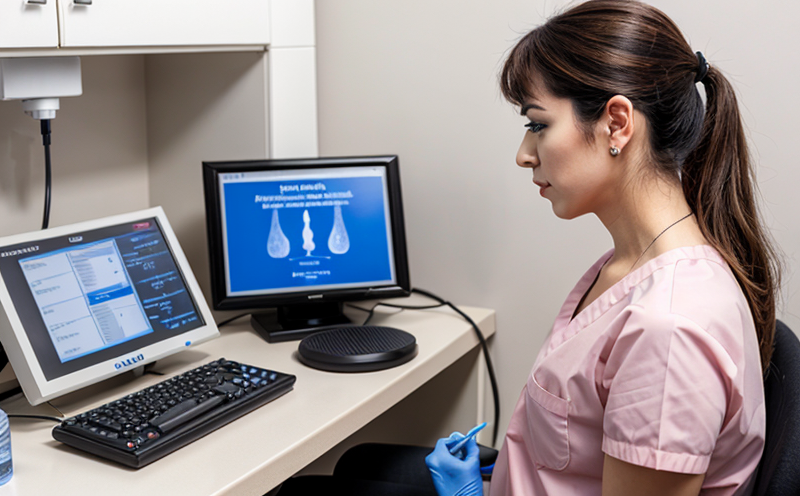Growth Hormone Testing in Livestock Production
The testing of growth hormones in livestock production is a critical aspect of ensuring food safety and animal welfare. Growth hormone (GH) plays a crucial role in the development, metabolism, and overall health of animals. Monitoring GH levels can help producers optimize feed efficiency, improve animal performance, and enhance meat quality. This service ensures that livestock are not exposed to harmful or excessive growth hormones that could affect human health.
Our laboratory specializes in providing accurate and reliable growth hormone testing for various species including cattle, pigs, sheep, and poultry. We use state-of-the-art technology and follow international standards to ensure the precision and reliability of our results. Our expertise spans across sectors such as agriculture, food safety, and animal health, making us a trusted partner for quality managers, compliance officers, R&D engineers, and procurement specialists.
One of the key benefits of our growth hormone testing service is its ability to support regulatory compliance. By ensuring that GH levels are within acceptable limits, we help livestock producers meet stringent international standards such as ISO 17025 for laboratory accreditation. This not only protects public health but also enhances consumer confidence in the safety and quality of agricultural products.
In addition to compliance, our service offers valuable insights into animal performance and welfare. By monitoring GH levels, we can identify potential issues early on, allowing producers to make informed decisions about feed management and overall care. This not only improves animal health but also reduces waste and increases efficiency in production processes.
The demand for growth hormone testing is driven by several factors including consumer preference for hormone-free products, increasing global population, and the rise of organic farming practices. Our service supports these trends by providing accurate and reliable data that can be used to meet market demands and regulatory requirements.
To ensure the highest level of accuracy and reliability, we employ a multi-step process in our testing methods. This includes sample collection, preparation, analysis using advanced instrumentation, and final reporting. Each step is meticulously documented and reviewed by our experienced team of scientists to ensure compliance with international standards.
| Step | Description |
|---|---|
| Sample Collection | We follow strict protocols for collecting samples from livestock, ensuring they are representative and free from contamination. |
| Preparation | The collected samples undergo rigorous preparation to ensure they are suitable for analysis. This includes homogenization and stabilization of the sample. |
| Analysis | We use advanced instrumentation such as liquid chromatography-tandem mass spectrometry (LC-MS/MS) to analyze GH levels in a precise and accurate manner. |
| Reporting | The final step is the generation of detailed reports that include raw data, analysis results, and recommendations for producers. |
This comprehensive approach ensures that our clients receive accurate and reliable growth hormone testing results, which are essential for maintaining high standards in livestock production. Our commitment to quality and reliability is reflected in the precision of our tests and the trust we have built with our clients over many years.
Scope and Methodology
The scope of our growth hormone testing service includes a wide range of species such as cattle, pigs, sheep, and poultry. The methodology involves several key steps to ensure accurate results:
- Sample Collection: We collect samples from live animals or carcasses depending on the requirement.
- Preparation: Samples are prepared by homogenization and stabilization using appropriate techniques.
- Analysis: Liquid chromatography-tandem mass spectrometry (LC-MS/MS) is used for precise quantification of growth hormones.
- Reporting: Comprehensive reports include raw data, analysis results, and recommendations tailored to the needs of livestock producers.
The methodology adheres strictly to international standards such as ISO 17025 ensuring accuracy and reliability. This approach ensures that our clients receive precise and reliable growth hormone testing results which are essential for maintaining high standards in livestock production.
Quality and Reliability Assurance
- Accreditation: Our laboratory is ISO 17025 accredited, ensuring that all testing processes meet international standards for precision and reliability.
- Calibration: Regular calibration of instruments ensures consistent accuracy in our tests.
- Data Integrity: All data is meticulously recorded and reviewed by our team of experienced scientists to ensure accuracy and integrity.
- Training: Our staff undergo continuous training to stay updated with the latest testing techniques and methodologies.
These measures are crucial for maintaining high standards in our growth hormone testing service. By adhering to these stringent protocols, we can provide clients with accurate and reliable results that meet their needs and regulatory requirements.
Environmental and Sustainability Contributions
- Eco-friendly Practices: We implement eco-friendly practices throughout our laboratory operations to minimize environmental impact.
- Waste Management: Proper disposal of waste materials generated during testing ensures minimal harm to the environment.
- Energy Efficiency: Our laboratory is equipped with energy-efficient equipment and lighting systems, reducing overall energy consumption.
By incorporating these practices into our operations, we contribute positively to environmental sustainability while maintaining high standards in growth hormone testing. This commitment reflects our dedication to responsible and sustainable business practices.





